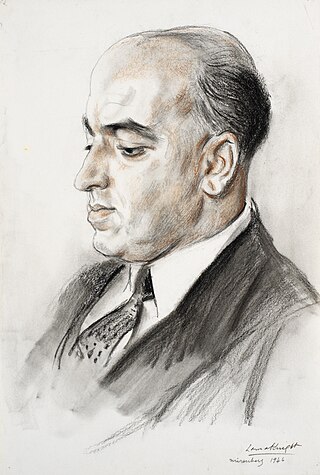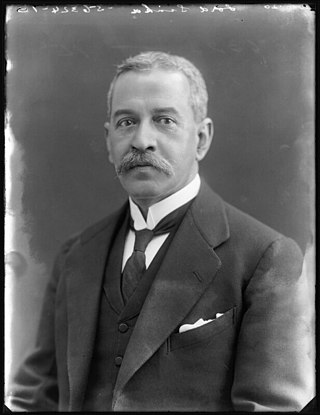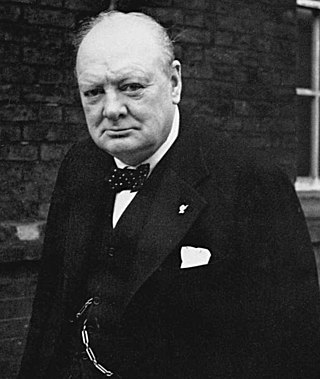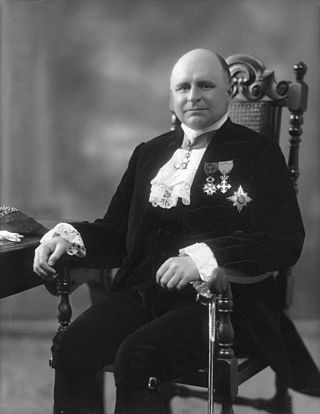Related Research Articles

Charles Pratt, 1st Earl Camden, PC was an English lawyer, judge and Whig politician who was first to hold the title of Earl Camden. As a lawyer and judge he was a leading proponent of civil liberties, championing the rights of the jury, and limiting the powers of the State in leading cases such as Entick v Carrington.

David Patrick Maxwell Fyfe, 1st Earl of Kilmuir,, known as Sir David Maxwell Fyfe from 1942 to 1954 and as Viscount Kilmuir from 1954 to 1962, was a British Conservative politician, lawyer and judge who combined an industrious and precocious legal career with political ambitions that took him to the offices of Solicitor General, Attorney General, Home Secretary and Lord High Chancellor of Great Britain.

Edward Gibson, 1st Baron Ashbourne, was an Anglo-Irish lawyer and Lord Chancellor of Ireland.

Satyendra Prasanna Sinha, 1st Baron Sinha, KCSI, PC, KC, was a prominent British Indian lawyer and statesman. He was the first Governor of Bihar and Orissa, first Indian Advocate-General of Bengal, first Indian to become a member of the Viceroy's Executive Council and the first Indian to become a member of the British ministry. He is sometimes also referred as Satyendra Prasanno Sinha or Satyendra Prasad Sinha.

Winston Churchill formed the third Churchill ministry in the United Kingdom following the 1951 general election. He was reappointed as Prime Minister of the United Kingdom by King George VI and oversaw the accession of Queen Elizabeth II in 1952 and her coronation.

Sir Courtenay Peregrine Ilbert, was a distinguished British lawyer and civil servant who served as legal adviser to the Viceroy of India's Council for many years until his eventual return from India to England. His later career included appointments as the First Parliamentary Counsel (1899–1902) and as Clerk of the House of Commons from 1902 to 1921.

Mandakolathur Patanjali Sastri was the second Chief Justice of India, serving in the post from 7 November 1951 to 3 January 1954.
The Sedition Committee, usually known as the Rowlatt Committee, was a committee of inquiry appointed in 1917 by the British Indian Government with Sidney Rowlatt, an Anglo-Egyptian judge, as its president, charged with evaluating the threat posed to British rule by the revolutionary movement and determining the legal changes necessary to deal with it.

Sir Sidney Arthur Taylor Rowlatt, KCSI, PC was a British barrister and judge, remembered in part for his presidency of the sedition committee that bore his name, created in 1918 by the imperial government to subjugate and control the independence movement in British India, especially Bengal and the Punjab. The committee gave rise to the Rowlatt Act, an extension of the Defence of India Act 1915.
Colonel Sir Sidney Cornwallis Peel, 1st Baronet, (1870–1938), was a British Army officer, barrister and financier. He was also for the coalition government term 1918–1922, a Conservative Member of Parliament (MP). For the 19 years until death he was a celebrated chairman of the Export Credits Guarantee Department Advisory Committee.
Sir Frederick Francis Liddell was a British lawyer and civil servant. He is noted for being First Parliamentary Counsel.

Sir George Phillips Coldstream was a British barrister and civil servant who served as Permanent Secretary to the Lord Chancellor's Department and Clerk of the Crown in Chancery from 4 June 1954 to 5 April 1968. Born to an upper-middle-class family, Coldstream was educated at Rugby School and Oriel College, Oxford, where he read law. In 1930 he was called to the Bar by Lincoln's Inn, but worked as a barrister for only four years before he was recruited into the Office of the Parliamentary Counsel, where he served as Assistant to the Parliamentary Counsel to the Treasury.

The Office of the Parliamentary Counsel (OPC) is responsible for drafting all government Bills that are introduced to Parliament. Established in 1869, the OPC has been part of various departments and is currently part of the Cabinet Office. Led by the First Parliamentary Counsel, Jessica de Mounteney, the OPC consists of 60 members of staff, 47 of whom are lawyers and 13 of whom are support staff. The lawyers who work in the office are referred to as Parliamentary counsel or Parliamentary draftsmen.

William Finlay, 2nd Viscount Finlay, was a British judge and peer who served as a Lord Justice of Appeal from 1938 to 1945.
Sir Arthur Theodore Thring, KCB, DL was an English lawyer, parliamentary draftsman and parliamentary clerk.
Sir Alan Edward Ellis, KCB, QC was a British lawyer and parliamentary draftsman.
Sir John Saye Wingfield Twisleton-Wykeham-Fiennes, KCB, QC was a British lawyer and parliamentary draftsman.
Sir John Armitage Stainton, KCB, KBE, QC was a British lawyer and parliamentary draftsman.
Sir Stanley Marks Krusin, CB was a British lawyer and parliamentary draftsman.
Terence Rowland Frazer Skemp, CB, QC was a British lawyer and parliamentary draftsman.
References
- 1 2 3 4 Thomas, Richard (2011). "Sir Sidney and Sir John: the Rowlatts and Tax" (PDF). British Tax Review (2). Archived from the original on 4 March 2016. Retrieved 17 July 2018.
{{cite journal}}: CS1 maint: unfit URL (link) - 1 2 3 4 "Sir J. Rowlatt", The Times, 5 July 1956, p. 14.
- 1 2 "WCOTA: Rewriting Income Tax Law 1907-56". www.taxadvisers.org.uk. Archived from the original on 17 July 2018. Retrieved 17 July 2018.
- 1 2 "Rowlatt, Sir John" Archived 27 January 2019 at the Wayback Machine , Who Was Who (online edition, Oxford University Press, December 2007). Retrieved 27 January 2019.
- ↑ Lord Kilmuir, "Sir John Rowlatt", The Times, 10 July 1956, p. 13.